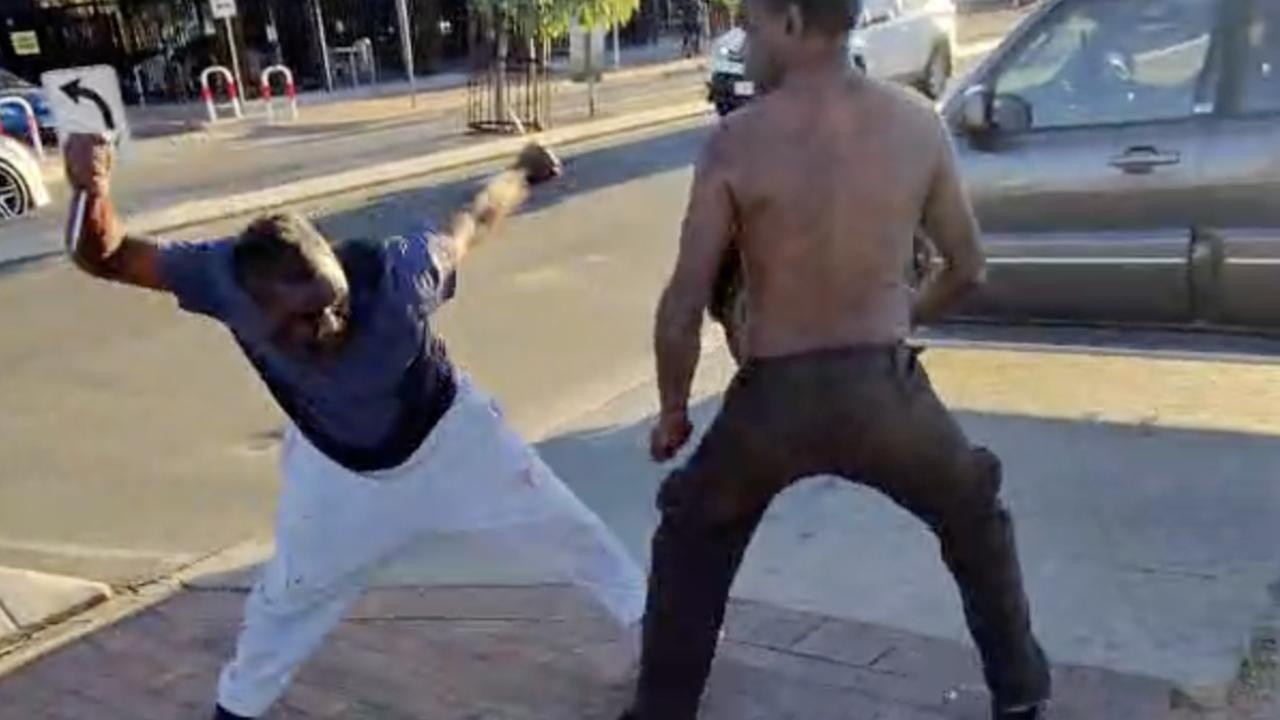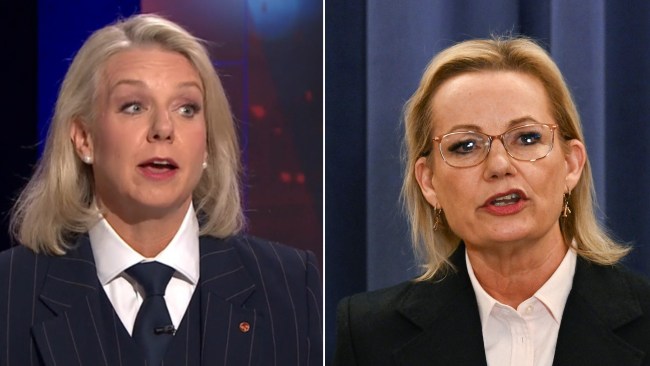Kumanjayi Walker: Race rupture over Yuendumu murder charge
A policeman charged with murdering an Aboriginal teen flees to Canberra, sparking anger.
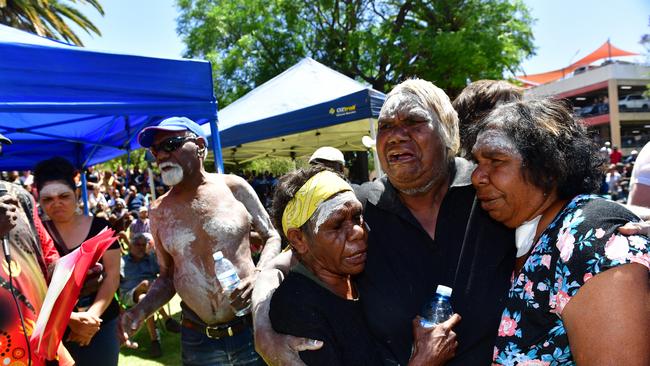
A Northern Territory police officer charged with the murder of an Aboriginal teenager during an attempted arrest in a remote community has been spirited out of Alice Springs to Canberra, sparking anger among indigenous leaders and tensions in the Territory police force.
More than 1000 people demonstrated in Alice Springs on Thursday over the killing of 19-year-old Kumanjayi Walker, who was allegedly shot by 28-year-old constable Zachary Rolfe on Saturday in the remote community of Yuendumu.
READ MORE: Promising career, now harrowing future | ‘Remember the oath’: tragedy divides community | Constable to plead not guilty | Decorated police officer in Yuendumu shooting of Aboriginal man | NT police commissioner pledge on Yuendumu teen’s death
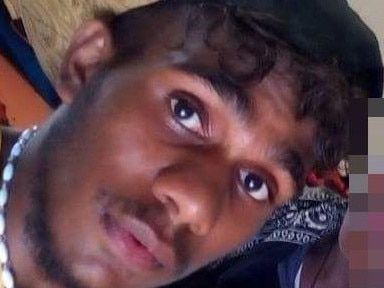
The shooting has caused the worst rupture in relations between police and the indigenous community since the death in custody on north Queensland’s Palm Island of Cameron Mulrunji Doomadgee in 2004. Residents of the island off Townsville rioted when they learned of the Aborigine’s fatal injuries and the officer in charge of the police lockup, then sergeant Chris Hurley, subsequently faced trial for manslaughter. He was controversially acquitted.
The NT Police Association said Constable Rolfe, who late on Thursday returned home to his family in Canberra after being granted bail in an out-of-sessions court hearing, would plead not guilty and “vigorously contest” the murder charge. He presented a defiant face on arrival at Canberra Airport, but declined to comment on the murder charge.
Chief Minister Michael Gunner and federal Indigenous Australians Minister Ken Wyatt sought to calm tensions.
“What I ask for, right here, right now, is that everyone remains respectful to each other,” Mr Gunner said on Thursday. “We cannot let and will not let this divide us.”
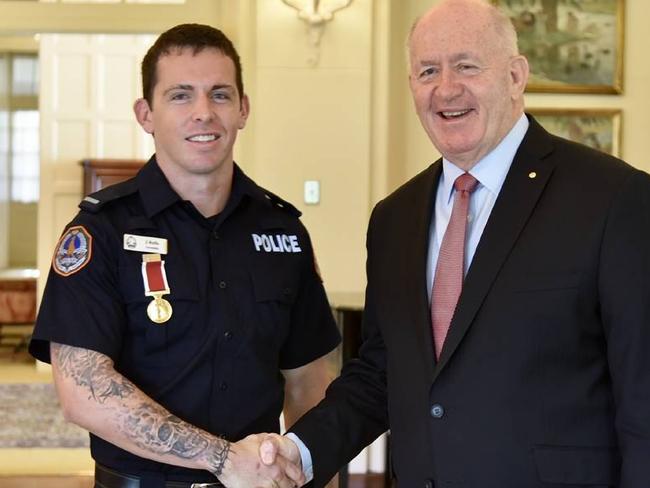
After flying to Alice Springs, where Constable Rolfe was based, Mr Wyatt is understood to have met elders from Walker’s clan group, the Warlpiri, and members of his family. “Now is not the time for blame,” Mr Wyatt said in a post. “Now is the time to care for those that need it most in our community. It is a time for compassion.”
Territory police commissioner Jamie Chalker, sworn-in only on Monday, called for calm.
He recognised that members of the force were “hurting”. “My police’s strength is only as strong as my weakest link,’’ Mr Chalker said. “I need all my officers to step to the fore, to trust one another, to trust in the process, to remember the oath that they took and the importance of integrity, ethics and fairness.’’
Mr Chalker stressed the importance of building strong, respectful relationships with remote communities.
Constable Rolfe’s release on bail, not generally granted to a defendant facing such a serious charge, was bitterly criticised by Walker’s bereaved family. Eddie Robertson, the grandfather of Walker’s partner, said he believed an indigenous person facing murder charges would not be freed from custody.
“It’s hopeless … they let him out,” Mr Robertson said. “I believe that, in this case, maybe he should go through Aboriginal law. He should be speared (in the leg). He would still be alive after that.”
NT police have refused requests from Warlpiri elders to stop carrying guns in remote communities in the wake of the fatal shooting.
Ill-feeling in indigenous communities across the Territory spiked when it was revealed Walker did not receive immediate medical treatment because staff of the medical clinic at Yuendumu, 300km northwest of Alice Springs, had left the community.
There have been claims that community unrest interfered with the police response and made the medivac of Walker difficult.
Walker was shot at a relative’s home while Constable Rolfe and his police partner were attempting to arrest him.
Otto Sims, a Warlpiri figure, insisted any attempts to blame the community for contributing to Walker’s death were wrong.
“We are the ones who went through trauma,” Mr Sims said. “It will take a long time to heal … how could this happen?”
Mr Robertson said police should “not be using guns in remote areas where nobody (else) carries guns, and nobody wants war with indigenous people”.
Yuendumu residents were at first jubilant to learn the news of Constable Rolfe being charged with murder, only to have this turn to dismay after the announcement he had been granted bail.
Human rights lawyer Stewart Levitt said he had been contacted by members of the community concerned about the integrity of any investigation by police.
Mr Levitt, who represented Aboriginal residents on Palm Island after the riot over Doomadgee’s death, said “police should not be investigating police’’. He said NT police had already contacted one local indigenous group asking for evidence related to the killing.
“There are concerns that the crime scene was not cordoned off or treated like a crime scene for 11 hours,’’ he said. “The community is concerned about the integrity of any investigation by the police. They are not comfortable with the notion of police investigating themselves.
“There should be an out-of-state investigation, preferably from NSW, Victoria or Tasmania.’’
Robin Granites, another senior Warlpiri man, echoed most of Mr Robertson’s criticism of Constable Rolfe being given bail but disagreed about traditional punishment. Mr Granites said police accused of crimes should face their own law, but locals also wanted a separate inquiry independent of the NT government to ensure transparency.
He said children had been running scared from police officers since Saturday’s shooting and that officers continued to roam Yuendumu with assault weapons.
“Why is it that they’ve always got these bloody guns with them?” Mr Granites asked. “In my youth, we were always playing football and basketball with the police … we had really good times with the police, but today that doesn’t happen. You see the cops on their own, walking around as if they run the bloody community.”
A police spokesman said the best means of restoring trust was through “continuing engagement”. “Police will continue to carry guns as part of their usual operational accoutrements, which meets the legislative requirements for health and safety as an employer,” the spokesman said.
The last fatal police shooting of an indigenous person to be classified as a death in custody was that of Mark Edward Mason, 44, who was shot twice during a struggle with a police officer at a house in Collarenebri, NSW, in 2010.
ADDITIONAL REPORTING: MICHAEL MCKENNA


